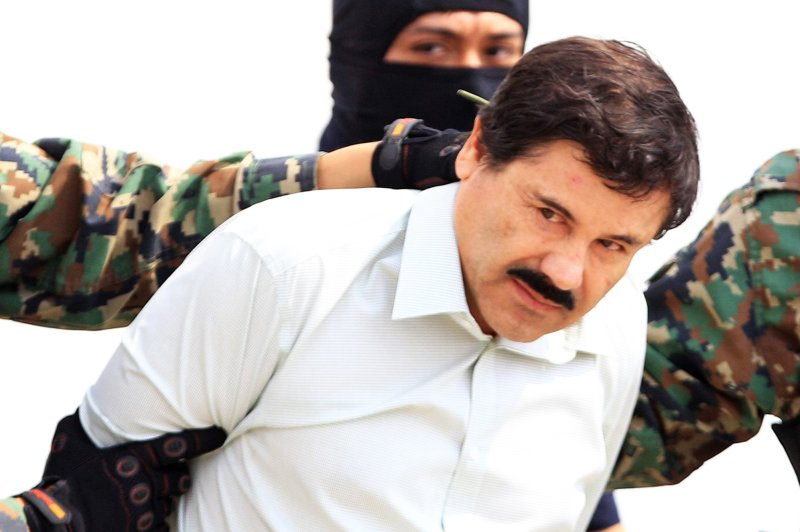Jurors will begin deliberations in the case against Mexican drug lord Joaquin 'El Chapo' Guzman Monday. Photo by Mario Guzman/EPA-EFE
Feb. 4 (UPI) -- A federal judge in New York will hand over the prosecution of accused drug kingpin Joaquin "El Chapo" Guzman to jurors Monday.
The trial so far has featured stories of gruesome torture, killings, government corruption, mistresses and sophisticated escapes. The accused leader of the Mexican Sinaloa drug cartel faces 10 criminal counts, mostly for drug trafficking and use of firearms.
Monday, the judge in the case will read instructions to the jury and give them the case. A verdict could follow at any time. Guzman, 61, has pleaded not guilty and did not testify at trial.
Prosecutors elicited more than 200 hours of testimony from 56 witnesses. Evidence exhibits included surveillance photos, phone calls, text messages and gold-plated firearms encrusted with diamonds.
"It's very difficult to defend when Chapo Guzman himself is negotiating for drugs or talking to a distributor and his voice is on the tape," said Mike Vigil, former chief of international operations for the U.S. Drug Enforcement Administration.
Bruce Bagley, a University of Miami professor and cartel expert, said the trial showed drug traffickers go to desperate lengths to smuggle, often using fishing boats, trains and tunnels. They also smuggle narcotics in passenger vehicles and tractor trailers that pass through legal checkpoints.
The trial also exposed the widespread bribery that goes on in the Mexican government.
"This trial gave the American public tremendous insight into how these powerful drug trafficking cartels operate," Vigil said.
Court documents unsealed over the weekend added a new element to the accusations. The papers accuse Guzman of paying $5,000 for underage girls who were drugged and raped at his Mexican hideouts in the late 2000s.
"[Guzman] called the youngest of the girls his 'vitamins' because he believed that sexual activity with young girls gave him 'life," the documents said.
Guzman's legal team denied the claims.
Bagley said the dangers posed by cartels and traffickers are difficult to fight, and finding a solution isn't easy.
"[President Donald Trump's border] wall is not going to stop any of this," he said. "The problems the United States has in sort of stopping these networks operating within the U.S. is overwhelming. It's beyond the capacities of our law enforcement communities."
If convicted, Guzman faces life in prison.















